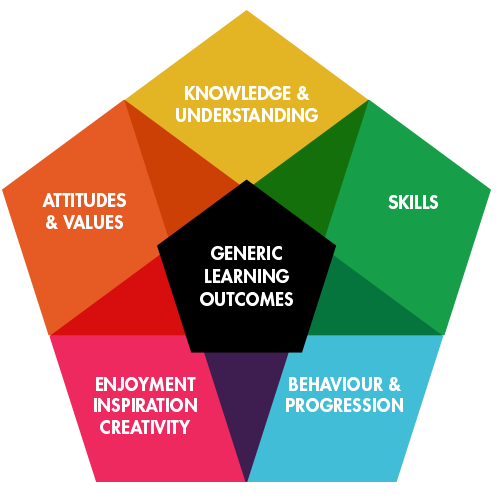A quick guide to evaluation
Evaluation is a critical friend of all those who want to develop their practice. Check out some of the key things to think about when planning evaluation and uncover its value to your work.
Introduction
Evaluation is often dismissed as a tick box exercise to satisfy funders – but it has so much more potential than that. Handled well evaluation can help you develop your approach; reflect on what is working well and less well; contribute new learning; evidence outcomes and impacts; and help you work out whether your work presents value for money.
You may choose to evaluate in-house or to buy-in external expertise. This decision will be informed by project size and budget, the complexity of the project, the relative ease with which data can be collected and analysed, and whether you have the skills in-house to evaluate your work.
Planning Evaluation
Whether you plan to do the evaluation yourself or buy-in external expertise, there are some fundamental things you need to decide. For example what is the purpose of your evaluation? Depending on whether the purpose is to refine the processes you have developed, evidence impact for funders or senior leaders, or to determine the approach you will take to the project, will make a difference to your planning. It is really helpful if you can identify the overall questions you and your team have, that evaluation could help you answer. This might be ‘did our activity increase the participants understanding of the Victorians?’ or ‘were the practicalities of the activity suitable for all those involved, if not, what could we change?’ Ideally you will think this through at the start of the project so you can weave the evaluation into the overall project plan.
Methodology
How will you answer the questions you’ve identified? You don’t need to wait until the end of the project, evaluation can be employed at the very beginning and throughout the project, as well as at the end.
There are two main types of evaluation data you might collect:
- Quantitative: facts and figures e.g. 14 of the 16 participants enjoyed the workshop
- Qualitative: narrative and descriptive data e.g. One of these participants explained ‘I enjoyed being able to share my opinion with others, and learn from their perspectives.’
Consider whether you can capture a baseline to measure change against; the balance of quantitative and qualitative data; time, and resources and skills available for data collection and analysis. It also helps to work out who might be able to provide you with insights – including the participants, independent observers, your team, or the partners you are working with.
Capturing a baseline can be as simple as asking people to share their views on something at the start of an event and at the end.
Data collection and analysis
Designing appropriate ways to capture data is like planning effective engagement – you need to consider the needs and interests of the participants to ensure your approach. You also need to consider how rigorous you need to data to be.
There are lots of creative approaches to evaluation that you can draw on from graffiti walls; video booths; peer to peer interviews; focus groups; arts based approaches; and surveys. You need to consider how you might embed this into the activity, rather than having it as an optional extra. Factors influencing your choices will include the participants, location, ethics, and time available. Don’t forget to factor in the time taken to analyse data, including coding of qualitative responses into common themes.

